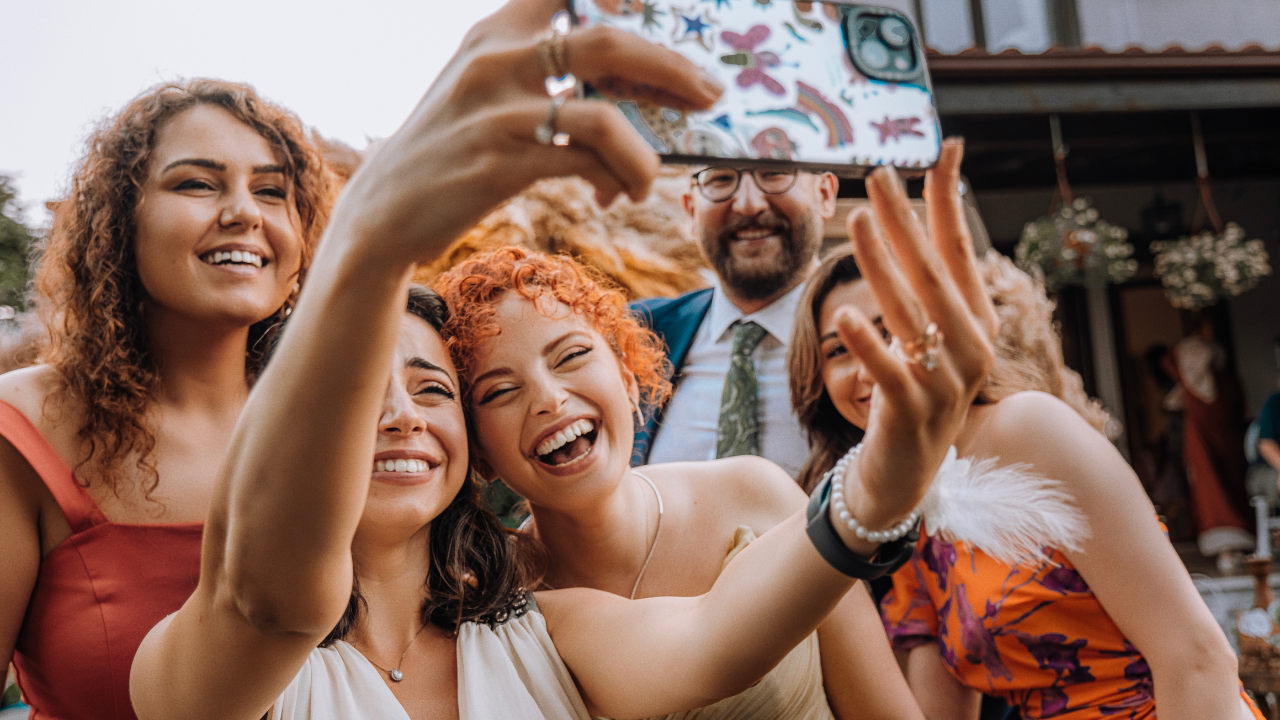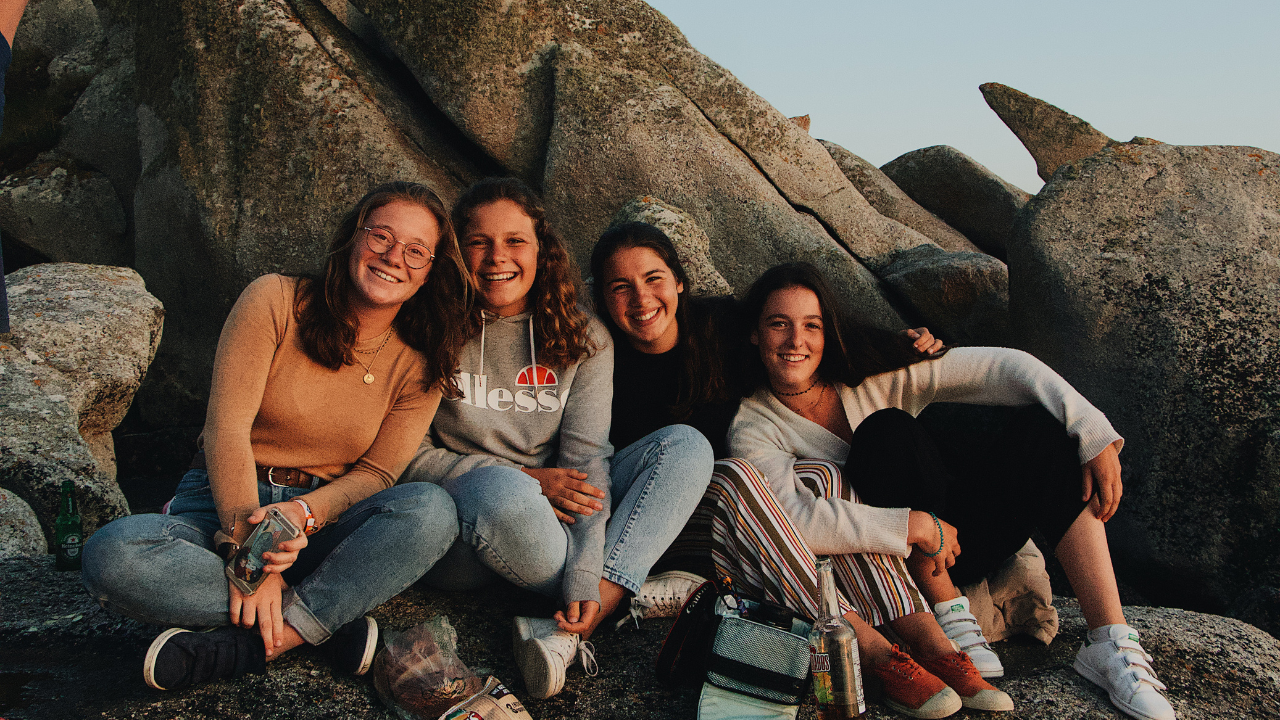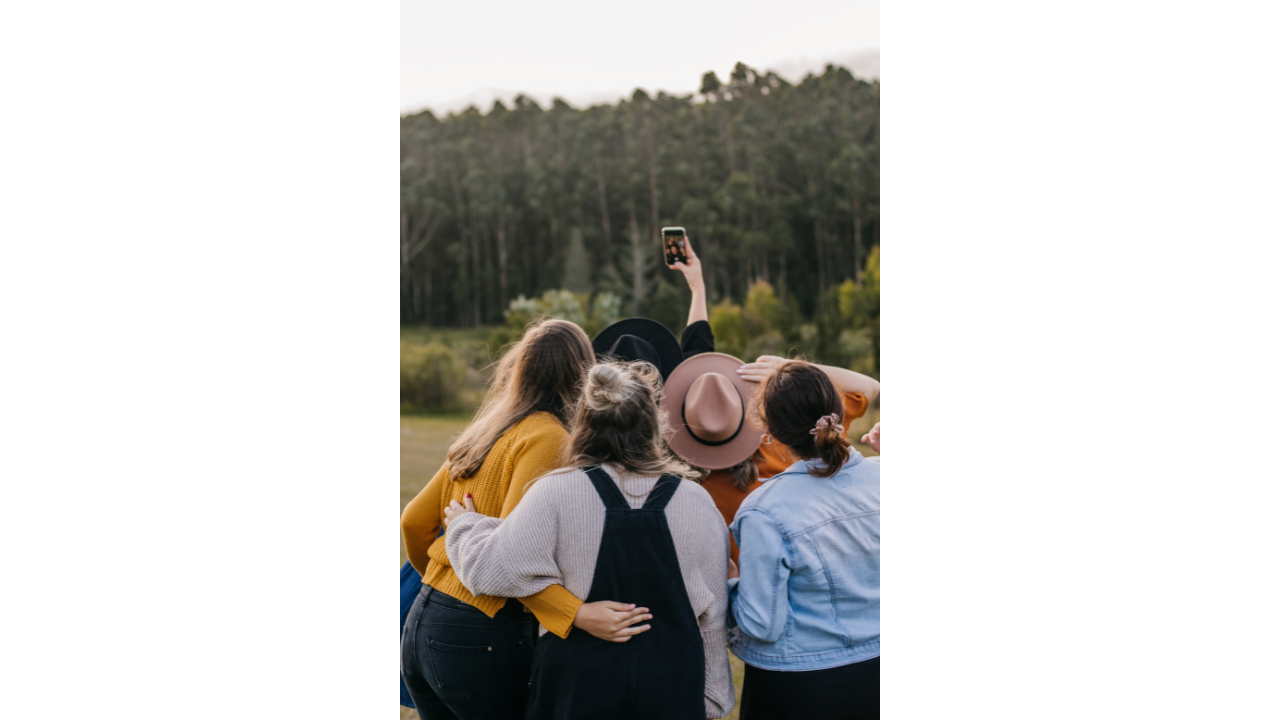9 Easy Ways to Make Friends Instantly
Making friends can sometimes feel challenging, especially in new environments or during life changes. There are simple and effective ways to build connections quickly and easily. By following these strategies, anyone can break the ice and start meaningful friendships in no time.
Connecting with others requires some effort and an open mind. Engaging in activities or groups that align with personal interests can create a natural environment for meeting new people. Utilizing social settings and being approachable are key components in developing immediate friendships.
This guide will outline nine straightforward ways to make friends right away. Each method is designed to encourage interaction and foster a sense of community, making it easier for anyone to expand their social circle. The Art of Small Talk
Small talk is a vital skill for making friends quickly. It helps break the ice and creates a comfortable atmosphere. Learning to initiate conversations and choose the right topics can make social interactions much easier.
Initiate with a Smile
Starting a conversation with a smile is simple yet effective. A genuine smile conveys friendliness and openness. It signals that a person is approachable and ready to engage.
When meeting someone new, it helps to make eye contact while smiling. This builds a connection and invites them to respond positively. Simple greetings like “Hi” or “How’s it going?” can lead to deeper discussions.
People are likely to mirror positive body language, so smiling also encourages them to be friendly in return. This small act can make a big difference in how comfortable both parties feel in the interaction.
Common Topics to Break the Ice
Choosing the right topics can kick off a conversation smoothly. Common subjects help to find shared interests and are easy to discuss.
Weather is a classic opener. It is universal and can be a good starting point. Comments like “It’s a beautiful day, isn’t it?” are simple yet effective.
Another good topic is asking about hobbies. Questions such as “What do you like to do in your free time?” invite the other person to share personal interests.
Current events and local happenings can also spark conversation, but it's best to avoid controversial subjects. Keeping the tone light helps maintain a relaxed environment for both people engaged in the talk.
Finding Common Interests
When making new friends, discovering shared interests is crucial. This connection not only fuels conversations but also creates lasting bonds. Two effective ways to identify these common ground areas are through active listening and sharing personal passions.
Active Listening Skills
Active listening is a powerful tool for building friendships. It requires focus on what the other person is saying, which helps to uncover shared interests. By maintaining eye contact and nodding, one can show genuine engagement.
Asking open-ended questions encourages deeper conversations. For example, instead of asking, "Did you like the movie?" one might ask, "What did you think about the character's development?" This invites the other person to share their thoughts and feelings.
Reflecting back what they say by paraphrasing can also demonstrate understanding. This confirms that their views are valued. Active listening fosters a comfortable space for sharing unique interests and viewpoints.
Share Your Passions
Sharing personal passions is an effective approach to finding like-minded friends. When individuals express what they love, it opens doors for similar discussions.
He or she might talk about hobbies such as painting, hiking, or reading. These topics can trigger shared experiences and create a spark in conversation.
Using platforms designed for interest-based connections, such as Meetup or local clubs, can be helpful. These environments encourage individuals to engage in their hobbies, making it easier to meet others with similar interests. When one shares their enthusiasm, it often inspires others to share their own passions, creating a dynamic exchange. This mutual sharing lays a strong foundation for a new friendship.
The Role of Body Language
Body language is crucial in shaping social interactions. It sends non-verbal signals that can create connections or barriers between individuals. Focusing on maintaining eye contact and using positive gestures can significantly boost the chances of making friends.
Maintaining Eye Contact
Making eye contact is one of the simplest yet most effective ways to connect with others. It shows confidence and interest. When people engage in conversation, maintaining eye contact about 50-70% of the time can make the interaction feel more genuine.
Too little eye contact can signify insecurity, while too much might come off as aggressive. A good balance helps in building trust and encourages openness.
It is also essential to be aware of cultural differences. In some cultures, extended eye contact is respected, while in others, it might be considered rude. Adjusting eye contact based on social context can enhance communication and make others feel more at ease.
Positive Gestures
Using positive gestures can make interactions feel warmer and more inviting. Simple actions, like smiling or nodding, show that one is engaged and approachable. These gestures create an atmosphere where others feel comfortable sharing.
Open body posture is also key. Standing or sitting with arms uncrossed and facing the person can convey friendliness. Mirroring the other person's gestures subtly can foster a sense of connection. This technique allows individuals to feel understood and valued.
Lastly, gestures like a light touch on the arm during conversation can also enhance feelings of closeness. However, it is vital to respect personal space to avoid discomfort. Understanding the impact of gestures can play a significant role in forming new friendships.
Invitations and Follow-ups
Inviting others to join activities and following up afterward are key steps in building friendships. Casual invitations can create bonds, while timely follow-ups show genuine interest in developing a connection.
Extend Invitations Casually
When inviting someone to join a social activity, keep it light and friendly. Confidence is important, so approach them naturally. For instance, saying, "Hey, a few of us are going to the park this weekend. Want to join?" makes the invitation feel easy and open. Casual invitations can work for various settings, such as:
Coffee Dates: Invite someone to grab coffee after work.Group Activities: Suggest a movie night with friends.Fitness Classes: Offer to attend a class together.Being specific about the time and place can help, but also allow for flexibility. A casual tone reduces pressure and increases the chance of acceptance.
The Importance of Following Up
Following up after an invitation shows the other person they matter. A simple message or call can strengthen the bond. It can be as straightforward as, "I had a great time last weekend! Let's do it again soon."
Effective follow-ups should be timely, ideally within a few days after the activity. They reinforce connections and maintain interest. Consider these follow-up tips:
Keep it Light: Use humor or friendly comments to make it easy.Suggest Future Plans: Propose another meetup based on mutual interests.Be Authentic: Show genuine enthusiasm for the friendship.Following up can make the other person feel valued, helping to build a lasting friendship.
Creating Opportunities for Interaction
Building friendships requires effort and the right settings to meet new people. Two effective ways to create chances for interaction include joining clubs or groups and attending local events. Joining Clubs and Groups
Joining clubs or groups allows people to connect with others who share similar interests. This could be a book club, sports team, or hobby group.
In these environments, members engage in activities that foster conversation and bonding. For instance, during a dance class, individuals might chat during breaks, making it easier to form friendships.
To find local clubs, a quick search online or checking community bulletin boards can provide information. Many libraries and community centers also share lists of available groups.
Regular attendance helps build familiarity. As people see each other often, friendships can develop naturally.
Attending Local Events
Attending local events is another excellent opportunity to meet new people. This can include festivals, open mic nights, or community fairs.
These gatherings provide a relaxed atmosphere, making it easier for individuals to strike up conversations. For example, sharing thoughts about a performance at an event can lead to meaningful exchanges.
It is helpful to look for events that align with personal interests. A food festival can attract food lovers, while an art fair draws in those who appreciate creativity.
Checking local event calendars online or on social media platforms can highlight upcoming opportunities. Engaging in these activities increases chances for interaction and potential friendships.
Online Platforms for Friendship
In today's digital world, many people turn to online platforms to build friendships. Choosing the right app or website can make a big difference in finding meaningful connections. Additionally, knowing how to transition from online interactions to in-person meetings is essential.
Choosing the Right Platform
Selecting the right platform for making friends is key. There are many options, each suited for different interests. For example:
Yubo is ideal for younger users, focusing on live streams and group chats. It caters mainly to those aged 13 to 25.Discord is great for gamers and those who enjoy community discussions. It allows users to join specific groups based on interests.Meetup helps people find local events where they can meet others with shared hobbies.Understanding the features of these platforms can help users find one that meets their needs. Safety is also important; they should look for apps with safety features, like profile verification and reporting options.
Online to Offline Transition
Moving from online friendship to real-life interactions can be daunting. Here are some tips for making it easier:
Start Small: Begin by chatting in a group setting before planning one-on-one meetups.Choose Public Spaces: Suggest meeting in a café or park for the first time. This helps ensure safety and comfort.Leverage Shared Interests: Attend events related to common hobbies. This creates a natural environment for conversation.Setting clear expectations can also ease any anxiety. Users should communicate their comfort levels and intentions clearly. With these strategies, forming real-life friendships from online connections can be simple and enjoyable.
Cultivating Positivity and Openness
To make friends easily, one must focus on positivity and be open to new experiences. These attitudes create a friendly environment where connections can flourish.
Adopting a Positive Mindset
A positive mindset is crucial for attracting new friends. People are naturally drawn to those who maintain an upbeat attitude. Simple actions can help cultivate this mindset.
Smile often. A genuine smile can brighten anyone’s day.
Practice gratitude. Recognizing what one is thankful for can shift focus from negatives to positives.
Use positive language. Replace complaints with uplifting comments.
Listening to others without judgment also fosters a warm atmosphere. When someone feels valued, they are more likely to connect deeply. Positivity not only enhances personal interactions but also makes one feel good, creating a cycle of kindness that encourages friendships.
Being Open to New Experiences
Being open to new experiences allows one to meet diverse people. Trying new activities, such as attending classes or community events, can lead to unexpected friendships. Join local clubs or groups. Engaging in shared interests is a great way to meet like-minded individuals.
Say yes to invitations. Accepting invites, whether to gatherings or activities, expands social circles.
Explore new hobbies. Learning something new, like cooking or dancing, opens doors to friendships.
This openness also means embracing differences in others. Being accepting of varied backgrounds and perspectives enriches one’s social life. By remaining open and adaptable, new friendships can easily develop.
The Importance of Reciprocity
Reciprocity plays a key role in forming and maintaining friendships. It involves giving and receiving support, which helps to build trust and closeness between friends. Understanding the elements of being supportive and engaging in mutual exchanges strengthens these bonds. Being Supportive
Support is vital in any friendship. When one friend faces challenges, the other should offer assistance. This can be emotional support, like listening to concerns, or practical help, like lending a hand during tough times.
Listening: It’s important for friends to listen actively. This shows respect and understanding.Offering Help: Simple acts, such as running errands or helping with projects, demonstrate a willingness to support.By providing support, friendships become more resilient and fulfilling. Friends who uplift each other can navigate life’s ups and downs together.
Mutual Exchange of Favors
Friendships thrive on a balanced exchange of favors. This reciprocity creates a sense of fairness and appreciation.
Sharing Responsibilities: It's important for friends to divide tasks and responsibilities. This ensures that no one feels overwhelmed.Exchanging Kindness: Small gestures, like sharing resources or helping out, reinforce the bond.When friends engage in mutual exchanges, they create a cycle of goodwill. This sense of interdependence fosters stronger connections and deeper trust.
Consistency and Patience in Building Relationships
Building strong friendships requires effort and time. Consistency and patience are essential qualities that help foster deeper connections. Regular communication and a calm approach can make a significant difference in developing lasting relationships. Regular Check-Ins
Regular check-ins are important for maintaining connections. They show that a person cares and values the friendship. Simple ways to check in include sending a text message or making a phone call.
Setting reminders can be effective to ensure these interactions happen. For instance, a quick weekly message can help keep the lines of communication open.
Additionally, planning periodic get-togethers, like coffee breaks or casual hangouts, reinforces the bond. Consistent effort can turn casual acquaintances into close friends, proving that small steps lead to meaningful relationships over time.
Patience is Key
Patience plays a crucial role in developing friendships. Not every connection will become a close friendship right away. It takes time to build trust and comfort with new people.
During the early stages, it is vital to be understanding. Some people may need more time to open up or may have busy schedules.
Showing empathy and giving space can help ease any pressure. It is also important to remember that relationships evolve. Over time, as shared experiences grow, deeper connections can form, making patience a valuable asset in friendship-building efforts.
Handling Rejection Gracefully
Rejection can be tough, but handling it well is important. Here are some tips to manage rejection gracefully.
Acknowledge Feelings
It’s okay to feel upset after being rejected. Allowing oneself to feel these emotions is the first step in moving on.Reframe the Experience
Instead of viewing rejection as a negative event, consider it a chance for growth. Each experience teaches valuable lessons.Focus on Strengths
Remember strengths and accomplishments. This boosts confidence and helps redirect thoughts towards positivity.Set Realistic Goals
Create small, achievable goals unrelated to social situations. This can help rebuild confidence and bring a sense of accomplishment.Practice Self-Care
Engage in activities that nourish body and mind, such as exercise and healthy eating. A solid routine helps maintain well-being.Connect with Supportive Friends
Talking to friends can provide comfort. Their understanding can make dealing with rejection easier.Limit Self-Criticism
Avoid harsh self-judgments. Instead, practice self-compassion to maintain a positive outlook.Stay Open to New Connections
Rejection often leads to new opportunities. Being open can help find new friendships.Reflect and Learn
Take time to reflect on the experience. Understanding what went wrong can aid personal growth and help in future interactions.Contributing to Existing Communities
Joining an existing community is a great way to meet new people. Many people find friends through shared interests and goals.
Volunteer Opportunities: Giving time to local charities or events connects individuals with others who care about similar causes. Volunteering can lead to strong friendships.Clubs and Groups: Look for hobby-based groups such as book clubs, sports teams, or gardening clubs. These gatherings provide a platform to socialize.Classes and Workshops: Taking classes, like cooking or art, allows people to learn while meeting others. Shared experiences can spark friendships.Neighborhood Events: Attend local fairs, farmers' markets, or community meetings. These events are perfect for connecting with neighbors.Online Communities: Join local forums or social media groups. Engaging with others online can lead to in-person meetings and friendships.Contributing to existing communities not only helps others but also enriches one’s own social life. Being active in a community creates common ground. This can lead to meaningful connections and friendships. Regular participation makes it easier for people to get to know one another.
Frequently Asked Questions
Making friends can be challenging, but understanding specific strategies can ease the process. Whether it's through online platforms or face-to-face interactions, there are effective ways to connect with others and build meaningful friendships. What are some effective strategies for making friends online?
He can join interest-based groups on social media or forums. Engaging in discussions about shared hobbies can lead to connections. Participating in online classes or virtual meetups also allows for interactions and finding like-minded individuals.
What's the best approach to making new friends at school?
She can start by joining clubs or teams that align with her interests. Being open to introducing herself to classmates in the same classes can create opportunities. Attending school events is another way to meet people and foster friendships.
How can someone overcome introversion to develop friendships?
They can take small steps, like initiating conversations in low-pressure settings. Setting achievable goals, such as talking to one new person each week, can make a big difference. Gradually increasing social interactions helps to build confidence over time.
What techniques help adults with social anxiety forge new friendships?
He can practice relaxation techniques before social events to reduce anxiety. Starting with smaller gatherings can make it easier to meet new people. Finding a buddy to go with can provide support and help ease into conversations.
How does an adult male go about creating a new circle of friends?
He can explore local clubs or community events that focus on his interests. Volunteering is another excellent way to meet others while also giving back. Approaching colleagues outside of work for casual hangouts can also expand his social circle.
Can you suggest ways to immediately connect with new people?
She can use open-ended questions, which encourage others to share more about themselves. Showing genuine interest by actively listening can create stronger connections. Simple gestures like smiling and maintaining eye contact can also make interactions more inviting.



